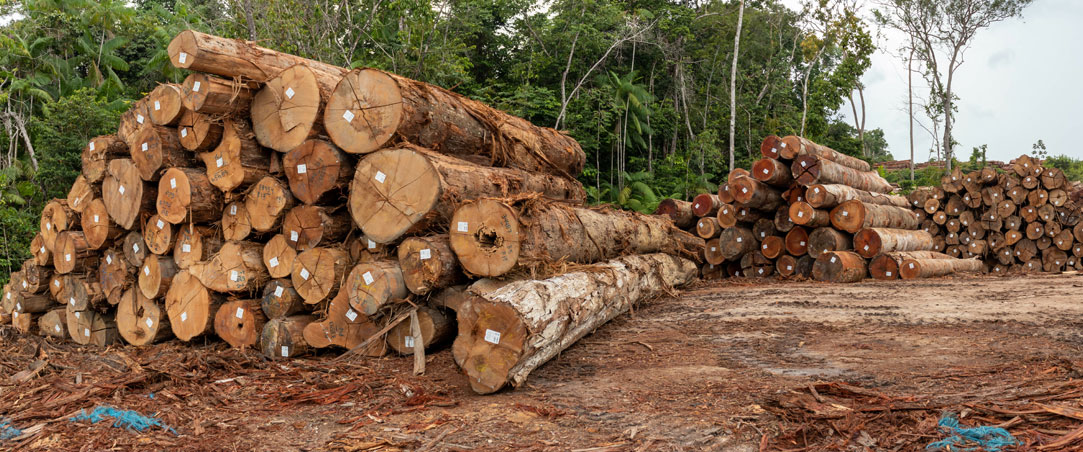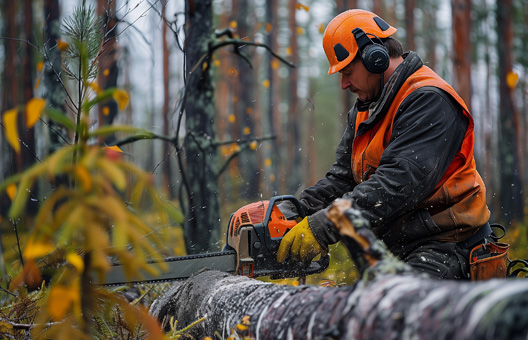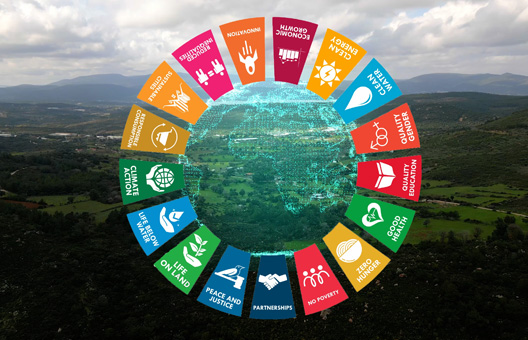The EU Deforestation Regulation
The European SINTETIC project is developed in the framework of the recently adopted EU regulation to combat deforestation. From 30 December 2024, the EU Deforestation Regulation (EUDR) will replace the EU Timber Regulation (EUTR) and it will oblige operators and traders of seven specific commodities, including timber, to apply a due diligence system prior to importing, exporting and/or placing these commodities on the EU Market.
Timber must come from plots of land where no deforestation or forest degradation has occurred, and operators must have documentation to prove the deforestation-free wood has been legally harvested before entering the EU market. Information as tree species, country of harvest, geo-coordinates of all plots of land where the wood was harvested, date or time range of harvest and evidence that the deforestation-free wood was legally harvested will be provided by operators and traders. Ensuring the truthfulness and precision of geolocation information is a crucial aspect of this new regulation.

The EU Deforestation Regulation in a nutshell
On 9 June 2023, Regulation (EU) 2023/1115 concerning the making available on the EU market and the export from the EU of certain commodities and products associated with deforestation and forest degradation (“Deforestation Regulation”) was published on the EU official Journal and entered into force on 29 June 2023.
From 30 December 2024 (or 30 June 2025 for micro or small businesses), it will be prohibited to place relevant products on the EU market, or export them from the EU, unless they are:
- deforestation-free, produced on land that has not been subject to deforestation (and forest degradation) after 31 december 2020
- produced in accordance with the relevant legislation of the country of production; and
- covered by a due diligence statement indicating no more than a negligible risk of non-compliance.
According to the level of risk assigned to each Country, operators will have to put in place one or three steps of due diligence:
- STEP 1 (As per Article 9). Collect information (and retain for 5 years) relating to: (i) the description of the covered products; (ii) their quantity; (iii) (parts of) the country of production; (iv) geo-localisation coordinates; (v) the name and contact details of their relevant suppliers and customers; and (vi) adequately conclusive and verifiable data that the covered products are deforestation-free and have been produced in accordance with the relevant legislation of the country of production.
- STEP 2 (As per Article 10) Operators must assess the risk of the products being non-compliant with the EUDR. Only if the risk assessment identifies no or only a negligible risk, may the product be placed (including imported) on the EU market or exported from the European Union. That risk assessment must be annually reviewed.
- STEP 3 Risk assessment. If non-negligible risk is found => adequate and proportionate risk mitigation measures must be taken before the products may be placed (including imported) on the EU market or exported from the EU. Available risk mitigation measures include implementing model risk management practices, reporting, and independent audits as well as appointing a compliance officer at management.

The geo-localisation requirement
The geographical location of a plot of land described by means of latitude and longitude coordinates corresponding to at least one latitude and one longitude point and using at least six decimal digits. The format of the geolocalisation information provided can differ according to the size of plots:
- For plot below 4 hectares, it is sufficient to provide one latitude and one longitude point,
- For plot above 4 hectares the geolocalisation information shall refer to the perimeter polygon identified by sufficient latitude and longiutude points.
Sintetic will impact in the objectives of the Horizon Europe Strategic Plan for 2021-2024

Climate change mitigation and adaptation
Sustainably produced and long-lived wood-based products can help to achieve climate neutrality by storing carbon and substituting fossil-based materials. Harvested wood products in the EU represent an active net carbon sink of around -40 MtCO2e/year, while also generating climate benefits through a material substitution effect, with values ranging from -18 to -43 MtCO2e/year. Sustainable and circular management of forests proposed by the Sintetic project will reverse the loss of biodiversity and associated ecosystem functions, reduce disaster risks (pests, fires), and restore degraded ecosystems.

Enhancing ecosystems and biodiversity on land and in waters
Sustainable forest management strengthens resilience and adaptation to natural disasters related to climate change, as well as supporting the application of global measures to combat global warming. According to the EU Biodiversity Strategy for 2030 the use of whole trees for energy production, whether from the EU or imported, should be minimized. The Sintetic project will develop, demonstrate, and validate a digital platform allowing broad data management of forest value chain. By adoption of the ID tracking system, project will maximize the yield of high value products, increase the high value timber assortments obtained from the same resources, and reduce illegal logging. Moreover, the Sintetic project will contribute toward safeguarding local livelihoods, protecting biodiversity and ecosystems provided by forests, reducing rural poverty, and mitigating some of the effects of climate change.

A resilient EU prepared for emerging threats
Protection of forests exposed to emerging threats like urbanization, invasive species, climatic change, natural disasters, and new pests or diseases is essential for sustaining biodiversity in forests ecosystems. The Sintetic project will foster sustainable forest management, by maximizing of the yield of high-value products and increase the high value timber assortments. It will enhance multi-functionality and the role of forests as carbon sink, as well as enhance the socio-economic development of rural areas.
Sintetic’s contribution towards the objectives of the Horizon Europe Strategic Plan for 2021-2024 and UN Sustainable Development Goals

One of the pillars of SINTETIC is the development and demonstration of a flexible system and a set of digital technologies that can deliver a similar service (with a unique data standard) to forest sectors and stakeholders. They represent different levels of technology development, investment-capacity, local market for forest products and digital infrastructures. Combined with dedicated training formats for the forest operators and the proposal of policy recommendations addressing the potential risks brought by digitalization (such as privacy of operators and ownership of data), the project will fulfil the EU Forest Strategy’s target: Developing skills and empowering people for sustainable forest-based bioeconomy, as well as the corresponding target of the EU Digital strategy: Developing skills and empowering citizens.

Industrial leadership in key and emerging technologies that work for people
Forests are substantial for meeting EU biodiversity and climate goals. Limited level of forest monitoring suffers from scattered reporting mechanisms, patchy data, low spatial and temporal resolution, lack of common definitions and complex processes to access data. The EU’s forthcoming Nature Restoration Law, as well as the EU’s Land Use Land Use Change and Forestry (LULUCF) Regulation attempts to address holistic monitoring of forest resources.
The digital platform dedicated to comprehensive forest value chain data management proposed by the Sintetic directly addresses that legislation providing fully functional technological frame ready for further adaptations. The project will allow to relate yield and quality output of any process in the value chain with inputs/outputs from earlier segments as well as with historical climatic data, silvicultural treatments and forest stand descriptors. It leads to more data-driven forests management. Consequently, the project will accelerate and steer the digital and green transitions through human-centered technologies and innovations in forest base value chains.

UN Sustainable Development Goals
